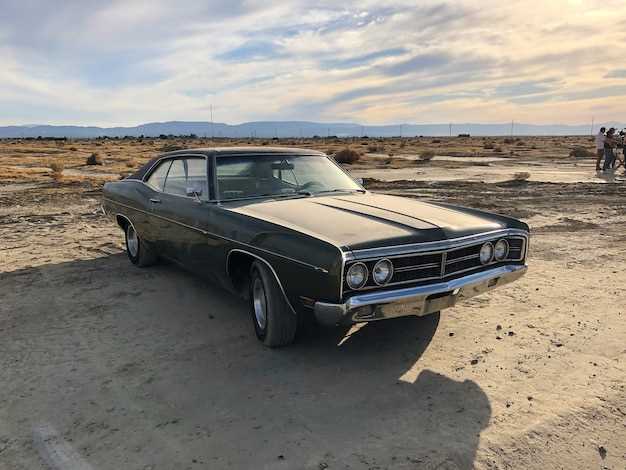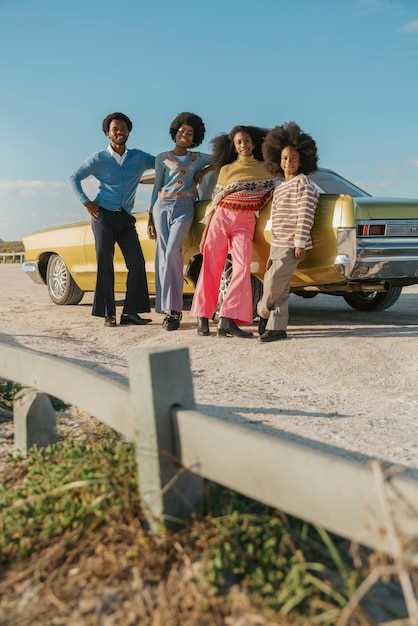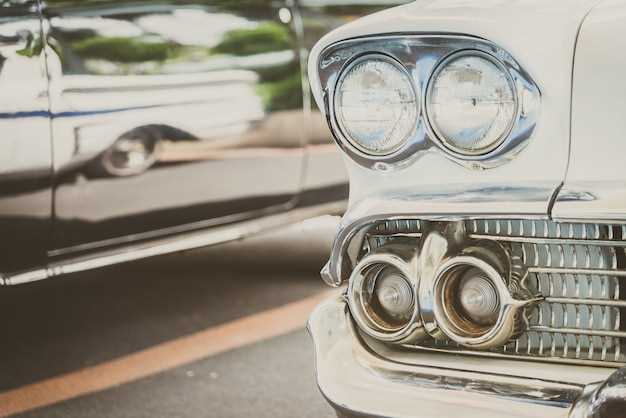
When it comes to investing in classic cars from the 1970s, finding a vehicle that is both rust-free and has a clean title is essential. The condition of the car not only affects its value but also influences the overall driving experience. For enthusiasts and collectors alike, certain states in the U.S. offer the best opportunities to find these gems, especially ones that have been preserved from the harsh elements that can lead to rust.
One crucial factor in the search for rust-free classics is the climate of the region. States with a dry climate tend to have fewer issues with rust because the lack of humidity slows down the rusting process significantly. Areas like Arizona and California are prime locations where classic cars were often stored in dry garages and driven on sunny roads, leading to a much cleaner condition over the years.
In addition to climate, it’s important to consider the local regulations around car titles. A clean title ensures that the vehicle has not been salvaged or severely damaged, adding to its value and desirability among collectors. In states known for their vintage car communities, you can often find well-documented vehicles that come with the reassurance of a clean history.
Top Dry States for Finding Classic Cars Without Rust

When searching for classic cars from the 1970s, it is essential to consider the dry climates of certain states. These regions typically offer the best chances of finding vintage vehicles in clean, rust-free condition. Here are some of the top dry states where classic car enthusiasts can focus their search:
1. Arizona – Known for its arid desert climate, Arizona has a largely rust-free car population. Cities like Phoenix and Tucson often feature classic car shows and auctions, providing ample opportunities to find well-preserved models.
2. Nevada – With its predominantly dry environment, Nevada is another excellent state for rust-free classic cars. The Las Vegas area hosts numerous automotive events that attract collectors and sellers alike, making it a prime location for enthusiasts.
3. New Mexico – New Mexico offers a similarly dry climate, which can help protect vehicles from corrosion. Car shows in cities like Albuquerque and Santa Fe frequently showcase classic models, attracting fans from all over the country.
4. California – Although it has diverse climates, many parts of California, especially inland areas, remain dry. The state is a haven for classic car collectors, with numerous swap meets and classic car events taking place year-round.
5. Texas – While Texas does feature humid areas, its vast regions of dry climate provide a great environment for preserving classic cars. The state’s many car shows, such as those in Austin and Dallas, offer excellent opportunities to discover rust-free vehicles.
Each of these states presents unique advantages in finding classic cars without the damage associated with rust. When searching, prioritize dry conditions and actively participate in local car communities to enhance your chances of discovering that perfect 1970s gem.
How to Verify a Clean Title for Classic Car Purchases

When considering the purchase of a classic car, especially models from the 1970s, verifying a clean title is crucial to ensure a sound investment. A clean title indicates that the vehicle has not been salvaged, rebuilt, or involved in significant accidents. Here’s a step-by-step guide on how to verify the title effectively.
1. Check the Title Document
Start by examining the title document for any discrepancies. Ensure that the Vehicle Identification Number (VIN) matches the number on the car. Additionally, look for any signs of alterations or forge marks that may indicate that the title is not authentic.
2. Use Title Verification Services
Utilize online title verification services that provide information about the vehicle’s history. These services can confirm whether the title has been reported as clean, and they can also check for previous incidents that may affect the car’s condition. In dry states, where classic cars often remain rust-free, this information can be beneficial.
3. Research State Regulations
Since title regulations vary by state, understanding the laws in the states where you are considering purchasing a vehicle is essential. Some states have more strict regulations regarding title transfers and the disclosure of vehicle history, which can aid in ensuring a clean title.
4. Contact the Previous Owner
Reaching out to the previous owner can provide insight into the car’s history. Ask about the title status and any issues they may have faced. A reputable seller will likely provide you with a transparent history, further assuring you of the car’s clean title.
5. Obtain a Vehicle History Report
Requesting a vehicle history report from reputable sources like Carfax or AutoCheck can reveal essential information about the car’s title status, including any past accidents or title changes. This report is invaluable when buying classic cars in dry, rust-free states, where vehicles are often maintained in better condition.
6. Get Professional Inspection
Before finalizing your purchase, consider hiring a professional inspector familiar with classic cars. They can verify the vehicle’s condition and help identify any title discrepancies. This step adds an extra layer of security to your investment.
By following these steps, you can ensure that the classic car you intend to purchase has a clean title, safeguarding your investment and enhancing your ownership experience.
Key Factors to Consider When Buying 1970s Classic Cars in Different States
When searching for 1970s classic cars, several key factors must be evaluated to ensure a worthwhile investment. Each state presents unique conditions that can influence the quality, availability, and legality of these vehicles.
Climate plays a significant role in the condition of classic cars. States with dry and clean climates, such as Arizona and Nevada, tend to have vehicles that are less prone to rust. Conversely, coastal regions or areas with high humidity may lead to corrosion issues, despite the car’s exterior appearance.
Additionally, consider the history of the vehicle’s title. A clear documentation indicates that the car has not been involved in significant accidents, theft, or salvage operations. Always verify that the title is clean and matches the vehicle’s identification number (VIN) to avoid future complications.
Researching local laws about classic cars is also vital. Different states have various regulations regarding emissions and vehicle modifications, which can affect the car’s usability and potential resale value. Understanding these aspects enables buyers to make an informed decision.
Inspection by a qualified mechanic is recommended, especially to assess areas that may not be immediately visible. Look for signs of past restoration work that could have masked issues like rust or frame problems. A thorough evaluation will help ensure the investment in a classic car is sound.
In summary, when buying 1970s classic cars, focus on climate, title history, local regulations, and thorough inspections. These factors are essential for ensuring you choose a vehicle that remains clean, dry, and free of major concerns.












